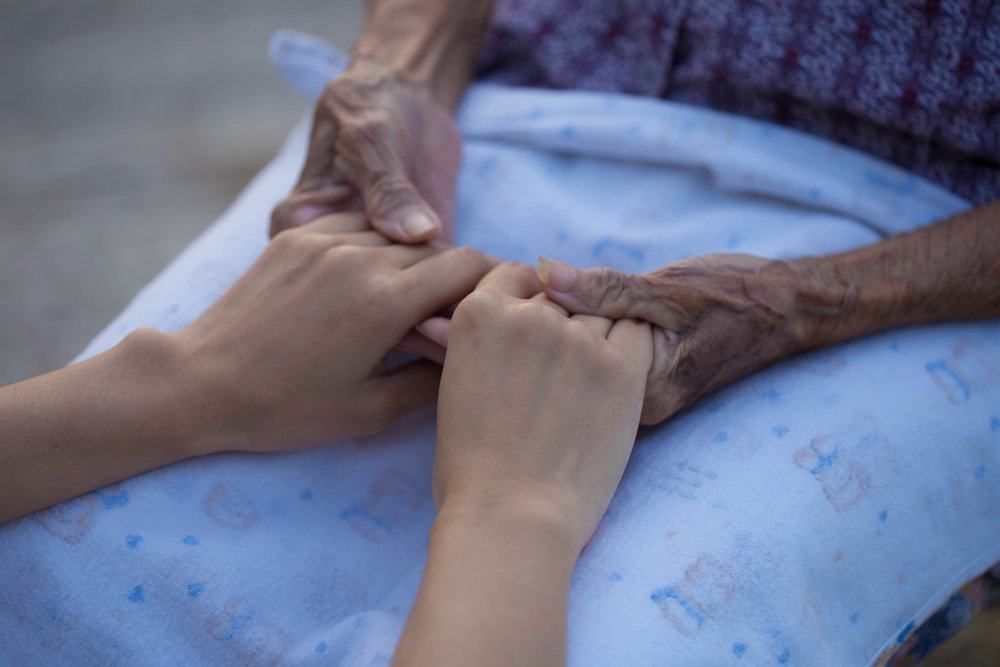Contents:
- Medical Video: Palliative Care Versus Hospice
- Death from chronic diseases continues to increase
- What is palliative care?
- What is the palliative care procedure?
- What are the benefits of palliative care?
- Who provides palliative care to patients?
Medical Video: Palliative Care Versus Hospice
Although treatment usually aims to cure disease, palliative care has slightly different goals. Usually this treatment is intended for patients suffering from advanced stage chronic diseases. What is palliative care, who needs it, and what is the procedure? See the explanation below.
Death from chronic diseases continues to increase
Along with technological developments, lifestyle changes, and dietary patterns, more and more people are experiencing chronic diseases even at a young age. From the data that is owned by WHO, it is known that there are 38 million people who die each year because they have non-communicable diseases. In fact, these diseases have been experienced by 16 million people, before they were 70 years old and caused premature death as much as 82%.
Cardiovascular disease - a disease that disrupts the health of the heart and blood vessels - is the main cause that causes premature death rates in the world. Then followed by cancer that has increased its incidence by 70% over the past 2 decades, then diabetes and respiratory diseases.
The high mortality rate from serious illnesses makes the WHO recommend palliative care which is considered to improve the quality of life of patients. WHO states that every person in the world has the right to get the best care even in the last days of his life. Because there are so many people who have serious illnesses, it is estimated that every year there are 19 million patients who need palliative care.
But what is palliative care? What is the difference from the usual treatment?
READ ALSO: 3 Signs of Heart Disease at a Young Age
What is palliative care?
Palliative care is a treatment that can be obtained by patients suffering from advanced stages of chronic disease, which aims to improve the quality of life of patients. Life enhancement is done by approaching the patient's psychological, psychosocial, mental and spiritual side, thus making the patient more calm, happy, and comfortable when undergoing treatment.
In Indonesia itself there is actually a provision from the Ministry of Health which states that there must be the application of palliative care for several types of serious diseases. But until now the implementation is still hampered by various things so that there is no maximum palliative care that can be received by patients in the hospital.
Although until now palliative care is often done in cancer patients, there are actually several diseases that also require this treatment, such as:
- Diseases suffered by adults are Alzheimer's, dementia, cancer, cardiovascular disease (including heart attacks), cirrhosis, chronic obstructive pulmonary disease, diabetes, HIV / AIDS, kidney failure, Multiple Sclerosis, Parkinson's, and TB.
- Diseases experienced by children, namely cancer, heart disease and blood vessels, cirrhosis, disorders of the immune system, HIV / AIDS, meningitis, kidney disease, and problems in the nervous system.
READ ALSO: 9 Diseases That Make You Tired Fast
What is the palliative care procedure?
Chronic illness experienced by patients has caused various things. The impact is not only on health, but affects all aspects of a patient's life. Therefore, palliative care is carried out to reduce other impacts that may arise due to the patient's illness.
Physical disorders, such as pain, insomnia, shortness of breath, no appetite, and pain in the stomach. These things are often felt by chronic disease patients who are already in the final stage. Then, what can be done to overcome this is to do nutritional counseling, do physical therapy, and provide techniques for taking deep breaths so that the body becomes more relaxed
Emotional and social disorders. Surely suffering from a serious illness will make the patient feel fear, anger, sadness, uncontrolled emotions, and depression. Likewise with the families of patients who also feel the same. In palliative care, this can be reduced by conducting counseling, making discussions between fellow patients who have a history of the same disease, and family meetings.
Financial problems. It cannot be denied that when you suffer from illness, you and your family must not only be mentally and physically prepared, but also from a financial perspective. Serious illness certainly causes considerable expenditure on medical expenses. Therefore in this palliative care, the nurse team must explain how much the cost is needed for treatment, before the treatment is carried out. Not only that, the palliative nurse team must also provide financial related counseling.
Spiritual problem. When someone experiences a serious illness, they will seek peace and tranquility. The nurse team will help the patient to find peace, and usually involves the character of each religion he believes in.
READ ALSO: 10 Symptoms of Stage 4 Breast Cancer
What are the benefits of palliative care?
There have been various studies that look at whether palliative care works and benefits patients with serious illness. The results of these studies mostly state the same thing, namely patients who can overcome the symptoms and signs that arise from the disease they are currently suffering from, can control emotions, and communicate well apparently tend to have better treatment experiences than the opposite.
Who provides palliative care to patients?
The palliative care team consists of various sciences and professions, depending on the needs of the patient. To deal with physical disorders in patients, it is usually done by medical personnel, such as nutritionists, nurses, doctors, pharmacists. Whereas for psychological, spiritual and financial problems can be done with the profession in question.












